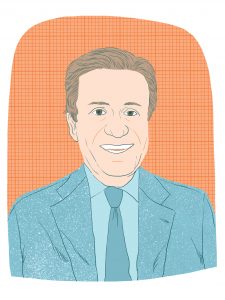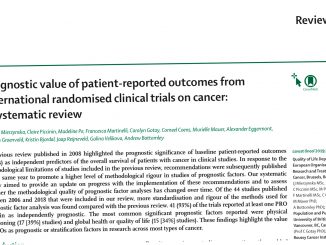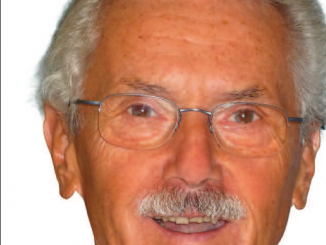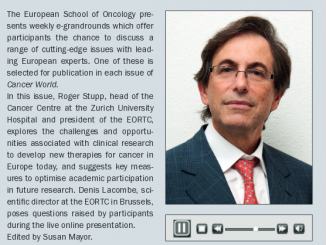 “A room full of healers.” This is how Larry Norton, Medical Director of the Evelyn H. Lauder Breast Center at Memorial Sloan Kettering, described the feel of the auditorium during the 4th Advanced Breast Cancer conference, which took place in Lisbon last November.
“A room full of healers.” This is how Larry Norton, Medical Director of the Evelyn H. Lauder Breast Center at Memorial Sloan Kettering, described the feel of the auditorium during the 4th Advanced Breast Cancer conference, which took place in Lisbon last November.
The ABC conference is about healing, in that it addresses the full spectrum of challenges that people with advanced breast cancer face in sustaining their overall health and wellbeing and their capacity to live active and fulfilling lives.
But Norton was referring not to the agenda so much as the healing qualities of the words and sentiments being articulated. This was more than a forum on how to ‘manage’ the disease and the patients. Thanks to the integration of patient advocates into all aspects of the programme, the conference was also about medicine as an act of listening to patients and taking their side.
Medicine is not medicine without passion and empathy, without the time to listen and support. We know, from a large number of carefully conducted studies, that even the most patient-centred of doctors routinely underestimates the severity of the burdens patients feel.
Belgian urologist Louis Denis, for instance, spent much of his career arguing – including in the pages of Cancer World – for his specialism to be more honest with patients about the impact long-term side effects could have on their lives, when discussing the risks and benefits of radical treatment for low-risk prostate cancer. Yet, after he himself developed prostate cancer, he admitted he had been astonished when he found out the true depth of exhaustion brought on by his radiotherapy treatment – and frustrated at ending up with impaired bladder control because he was persuaded, against his better judgement, to accept that extra boost to the dose.
None of us knows what it is to suffer cancer, and the short- and long-term impact of cancer treatments, unless we’ve been through it. The new YOU protocol that EORTC, the leading European cancer trials organisation, hope to introduce by the end of 2018 (see ‘Gathering long-term data on what happens next’), should offer a welcome source of data on long-term impacts including on functional and societal aspects of patients’ lives.
But to play the healing role we aspire to, we need to understand what those impacts mean to people who live with them, and that means learning to listen, really listen, to the patient advocates who know what it is like to live life as an oestrogen-deprived woman, or a testosterone deprived man, or with damaged salivary glands, long-term neuropathy, relentless fatigue, fear of recurrence, chemobrain and all the many different impacts that go with being a cancer survivor.
So we say “hats off!” to cancer patient advocates, who not only manage to cope with the disease and tough treatments, but also find the strength and motivation to engage with the clinical science, educate cancer professionals about the reality of the lived experience, and fight for their rights and those of their fellow patients, to make medicine more effective and also more human.






Leave a Reply